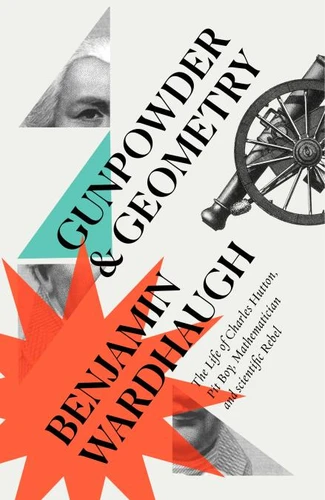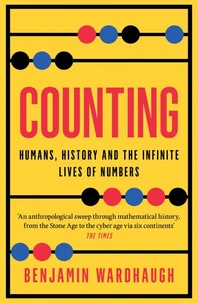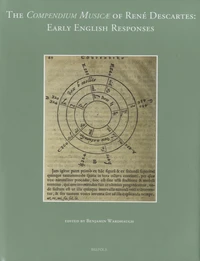Gunpowder and Geometry. The Life of Charles Hutton, Pit Boy, Mathematician and Scientific Rebel
Par :Formats :
Disponible dans votre compte client Decitre ou Furet du Nord dès validation de votre commande. Le format ePub protégé est :
- Compatible avec une lecture sur My Vivlio (smartphone, tablette, ordinateur)
- Compatible avec une lecture sur liseuses Vivlio
- Pour les liseuses autres que Vivlio, vous devez utiliser le logiciel Adobe Digital Edition. Non compatible avec la lecture sur les liseuses Kindle, Remarkable et Sony
- Non compatible avec un achat hors France métropolitaine
 , qui est-ce ?
, qui est-ce ?Notre partenaire de plateforme de lecture numérique où vous retrouverez l'ensemble de vos ebooks gratuitement
Pour en savoir plus sur nos ebooks, consultez notre aide en ligne ici
- Nombre de pages320
- FormatePub
- ISBN978-0-00-829997-2
- EAN9780008299972
- Date de parution07/02/2019
- Protection num.Adobe DRM
- Infos supplémentairesepub
- ÉditeurWilliam Collins
Résumé
August, 1755. Newcastle, on the north bank of the Tyne.
In the fields, men and women are getting the harvest in. Sunlight, or rain. Scudding clouds and backbreaking labour. Three hundred feet underground, young Charles Hutton is at the coalface. Cramped, dust-choked, wielding a five-pound pick by candlelight. Eighteen years old, he's been down the pits on and off for more than a decade, and now it looks like a life sentence.
No unusual story, although Charles is a clever lad - gifted at maths and languages - and for a time he hoped for a different life. Many hoped. Charles Hutton, astonishingly, would actually live the life he dreamed of. Twenty years later you'd have found him in Slaughter's coffee house in London, eating a few oysters with the President of the Royal Society. By the time he died, in 1823, he was a fellow of scientific academies in four countries, while the Lord Chancellor of England counted himself fortunate to have known him.
Hard work, talent, and no small share of luck would take Charles Hutton out of the pit to international fame, wealth, admiration and happiness. The pit-boy turned professor would become one of the most revered British scientists of his day. This book is his incredible story.
No unusual story, although Charles is a clever lad - gifted at maths and languages - and for a time he hoped for a different life. Many hoped. Charles Hutton, astonishingly, would actually live the life he dreamed of. Twenty years later you'd have found him in Slaughter's coffee house in London, eating a few oysters with the President of the Royal Society. By the time he died, in 1823, he was a fellow of scientific academies in four countries, while the Lord Chancellor of England counted himself fortunate to have known him.
Hard work, talent, and no small share of luck would take Charles Hutton out of the pit to international fame, wealth, admiration and happiness. The pit-boy turned professor would become one of the most revered British scientists of his day. This book is his incredible story.
August, 1755. Newcastle, on the north bank of the Tyne.
In the fields, men and women are getting the harvest in. Sunlight, or rain. Scudding clouds and backbreaking labour. Three hundred feet underground, young Charles Hutton is at the coalface. Cramped, dust-choked, wielding a five-pound pick by candlelight. Eighteen years old, he's been down the pits on and off for more than a decade, and now it looks like a life sentence.
No unusual story, although Charles is a clever lad - gifted at maths and languages - and for a time he hoped for a different life. Many hoped. Charles Hutton, astonishingly, would actually live the life he dreamed of. Twenty years later you'd have found him in Slaughter's coffee house in London, eating a few oysters with the President of the Royal Society. By the time he died, in 1823, he was a fellow of scientific academies in four countries, while the Lord Chancellor of England counted himself fortunate to have known him.
Hard work, talent, and no small share of luck would take Charles Hutton out of the pit to international fame, wealth, admiration and happiness. The pit-boy turned professor would become one of the most revered British scientists of his day. This book is his incredible story.
No unusual story, although Charles is a clever lad - gifted at maths and languages - and for a time he hoped for a different life. Many hoped. Charles Hutton, astonishingly, would actually live the life he dreamed of. Twenty years later you'd have found him in Slaughter's coffee house in London, eating a few oysters with the President of the Royal Society. By the time he died, in 1823, he was a fellow of scientific academies in four countries, while the Lord Chancellor of England counted himself fortunate to have known him.
Hard work, talent, and no small share of luck would take Charles Hutton out of the pit to international fame, wealth, admiration and happiness. The pit-boy turned professor would become one of the most revered British scientists of his day. This book is his incredible story.






